Longmeadow doesn’t have much industry. My uncle says our biggest export is educated youth. There is one industry that needs attention, and that is the farm land in the meadows.

The town owned farm land consists of about 166 acres. The town bought this land around 1993 with partially funded federal money and the Massachusetts Department of Environmental Protection (DEP) has a conservation restriction on the land. The town rents this land to the farmer, Baggot Family Farms, as long as they handle the town leaves. This post will describe how the land is not being conserved – it is being actively destroyed. Our town must restore and save this land for future generations.
Floodplain
In 1972, the U.S. Department of the Interior designated the Longmeadow floodplain conservation area a National Natural Landmark (NNL). “National Natural Landmarks are selected for their outstanding condition, illustrative value, rarity, diversity, and value to science and education.” [1]https://www.nps.gov/orgs/1211/index.htm There are only 11 of these in Massachusetts, but over 500 in the country, that is Yellowstone level type acknowledgment. According to Mass Mapper, the meadows conservation area “is the largest and highest-quality example of Major-River Floodplain Forest currently known in Massachusetts” [2]https://maps.massgis.digital.mass.gov/MassMapper/MassMapper.html. It is also designated as a “Natural Heritage & Endangered Species Program (NHESP) Priority Habitats of Rare Species” [3]https://www.mass.gov/orgs/masswildlifes-natural-heritage-endangered-species-program. The Massachusetts Department of Environment Protection (DEP) has given this area an identification number PH 2048. The EPA has stated that “Wetlands store carbon within their plant communities and soil instead of releasing it to the atmosphere as carbon dioxide. Thus, wetlands help to moderate global climate conditions” [4]https://www.epa.gov/wetlands/why-are-wetlands-important. The meadows provide a habit for rare migratory birds, frogs, fish, beavers, spiders, rare plants, flood tolerant trees, and more. It is unfair that the most important forested floodplain wetlands area in Massachusetts has a farm.
Pollution

Soil erosion, water retention, and weed control become more difficult as soil loses its organic matter and degrades due to industrial farming. Currently, black polyethylene plastic is used by the farmer to hold in water, prevent erosion, prevent weed pressure, and ultimately increase yields. This plastic can be found throughout the conservation area. This black plastic is difficult to completely remove after harvesting. It easily breaks down and tears, creating small pieces of microplastics that will not decompose.
The farmer made the decision to plow the black plastic directly into the soil instead of cleaning it up. After writing this article, there was feedback that the farmer does actually pick up the plastic. This is probably partially true and I missed the work crew. I did see them ripping through the plastic with a machine and plowing the soil this year. If I am wrong, I appologize. The point was suppose to be about plastic pollution.
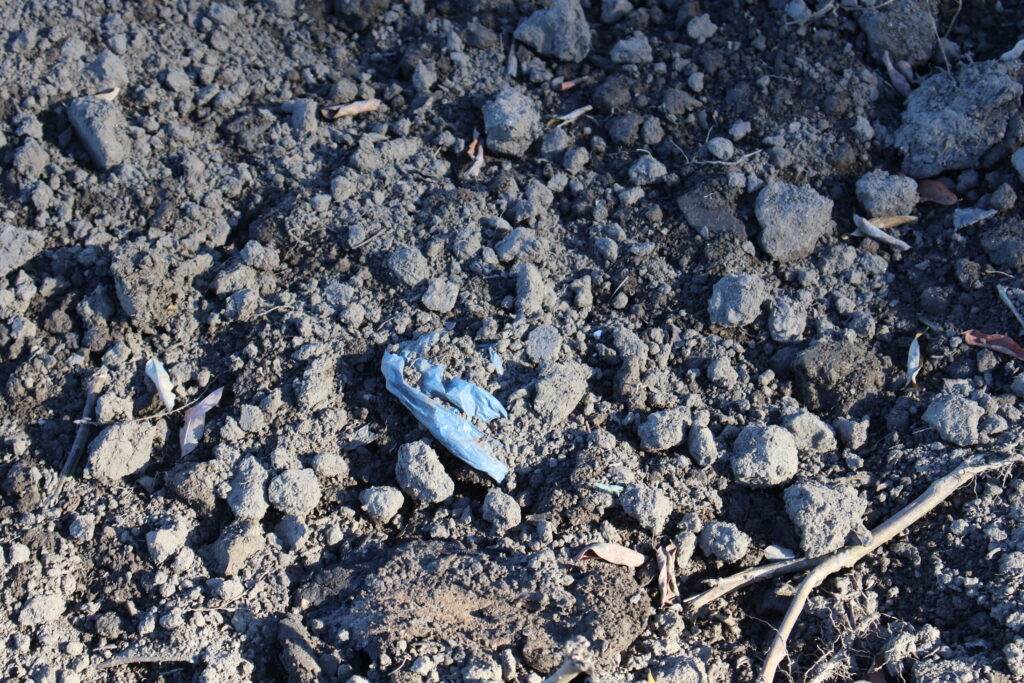
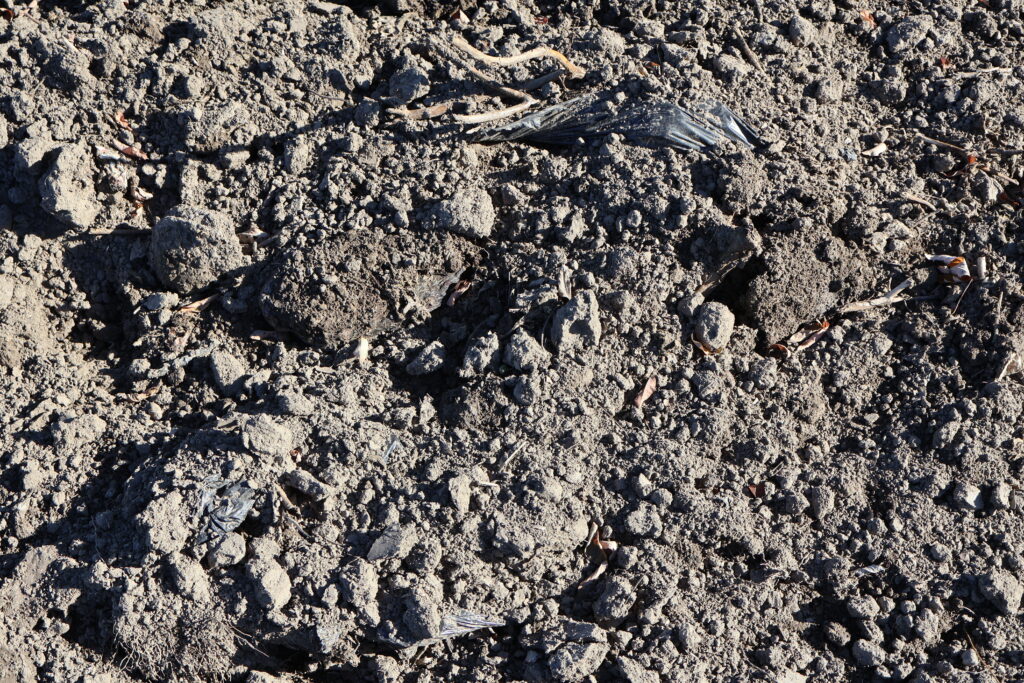
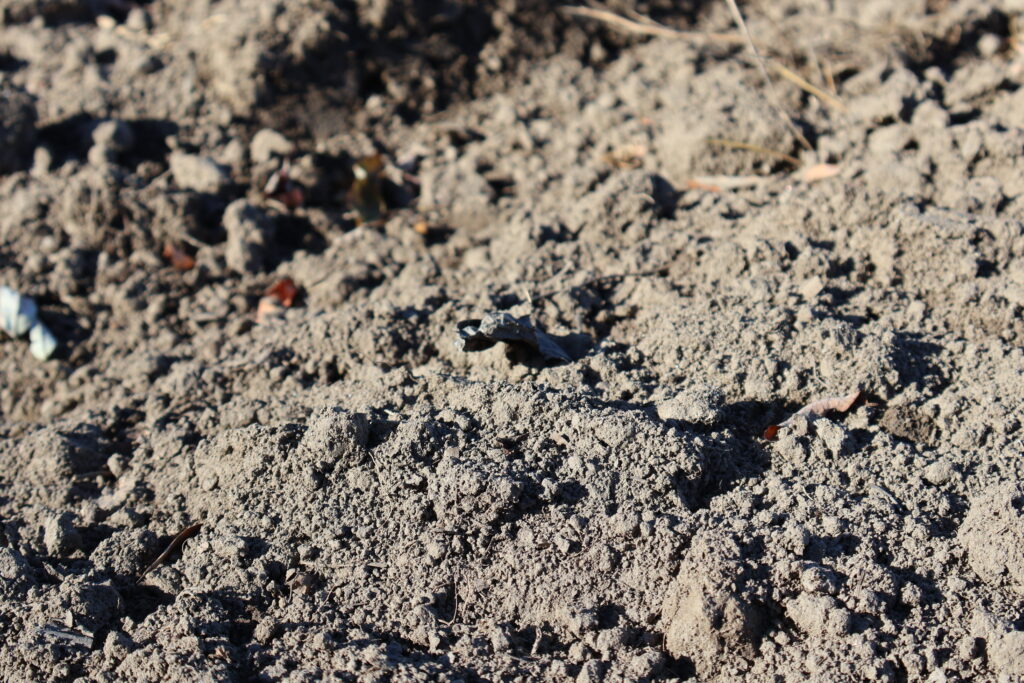
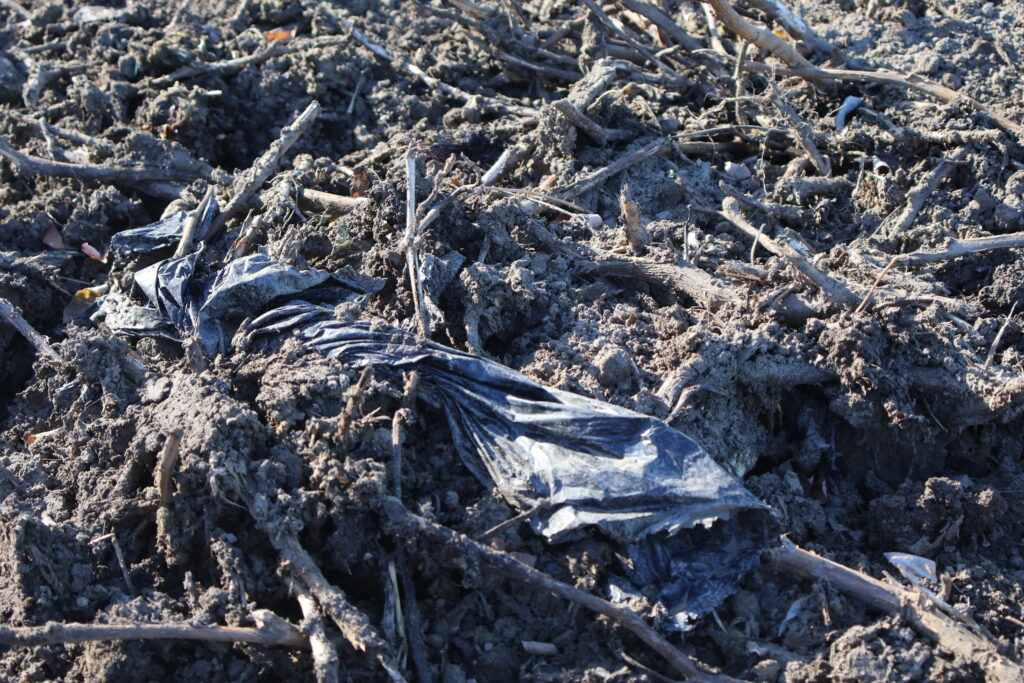
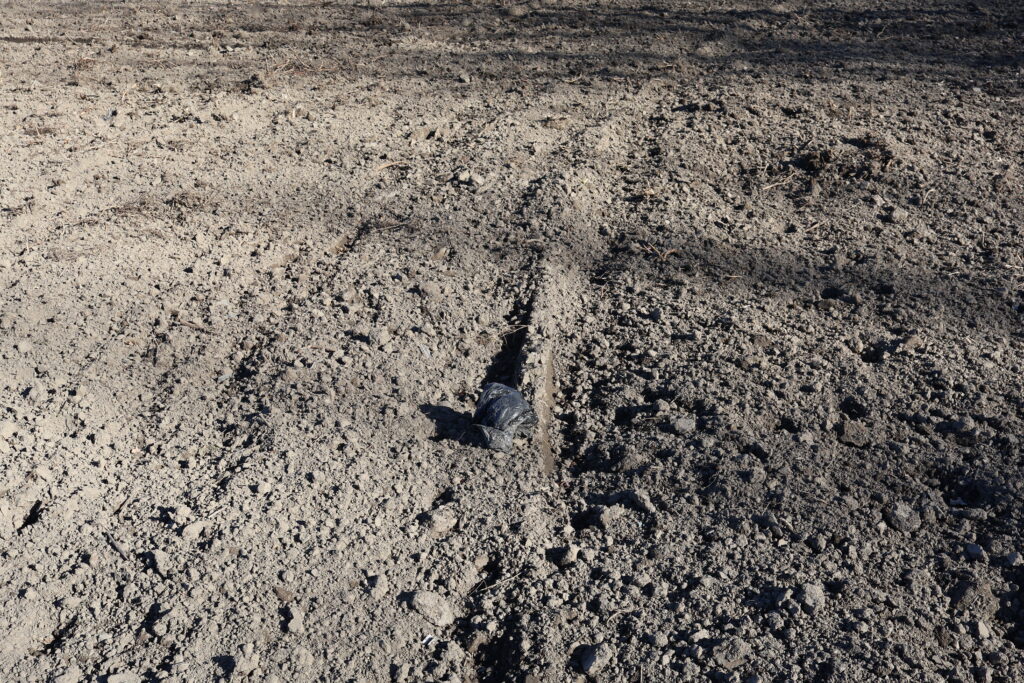
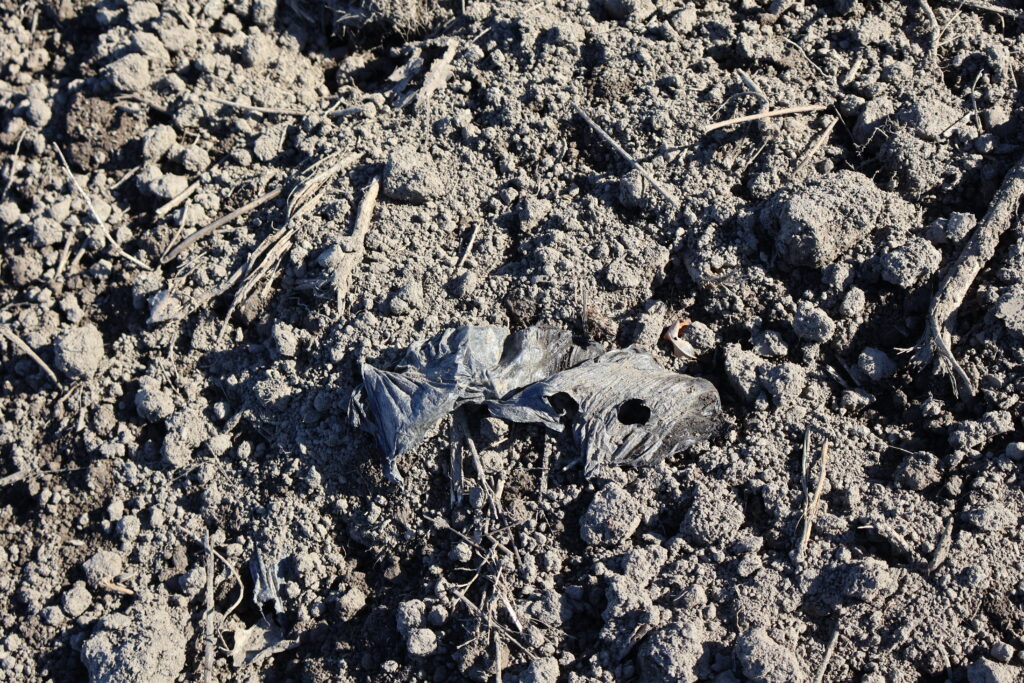
Microplastics are a large issue that is not being addressed by the government. Plastic can now be found everywhere on the planet. “We already knew that humans ingest and inhale microplastics, up to 121,000 microparticles per year for an adult, or as one controversial “comparison” puts it, the equivalent of a credit card (5 grams) per week. [5]https://pubs.acs.org/doi/abs/10.1021/acs.est.9b01517”
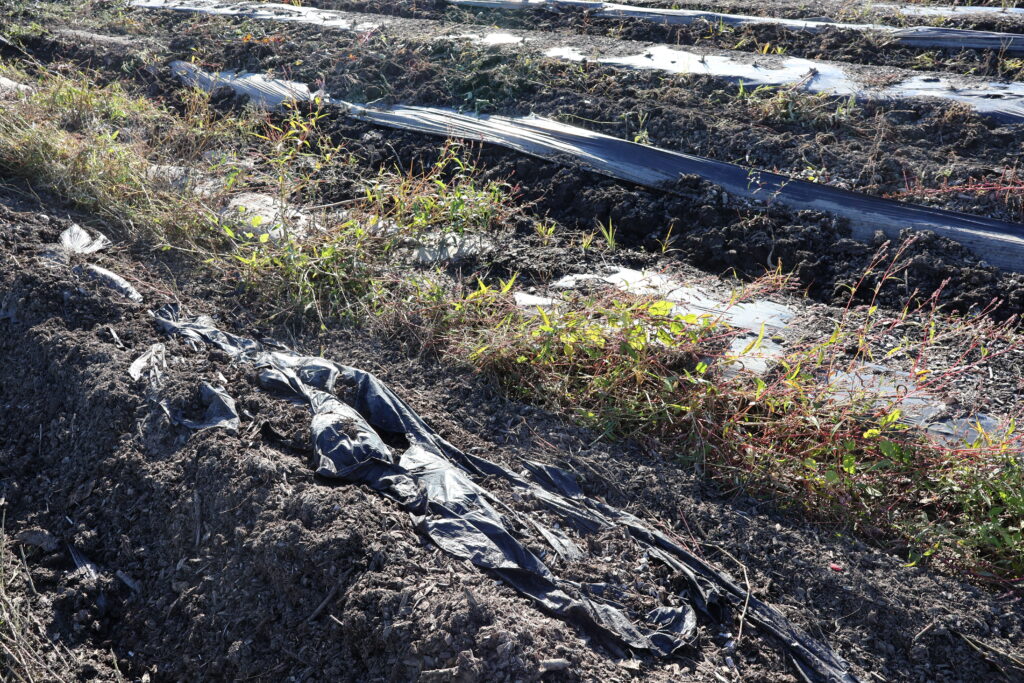
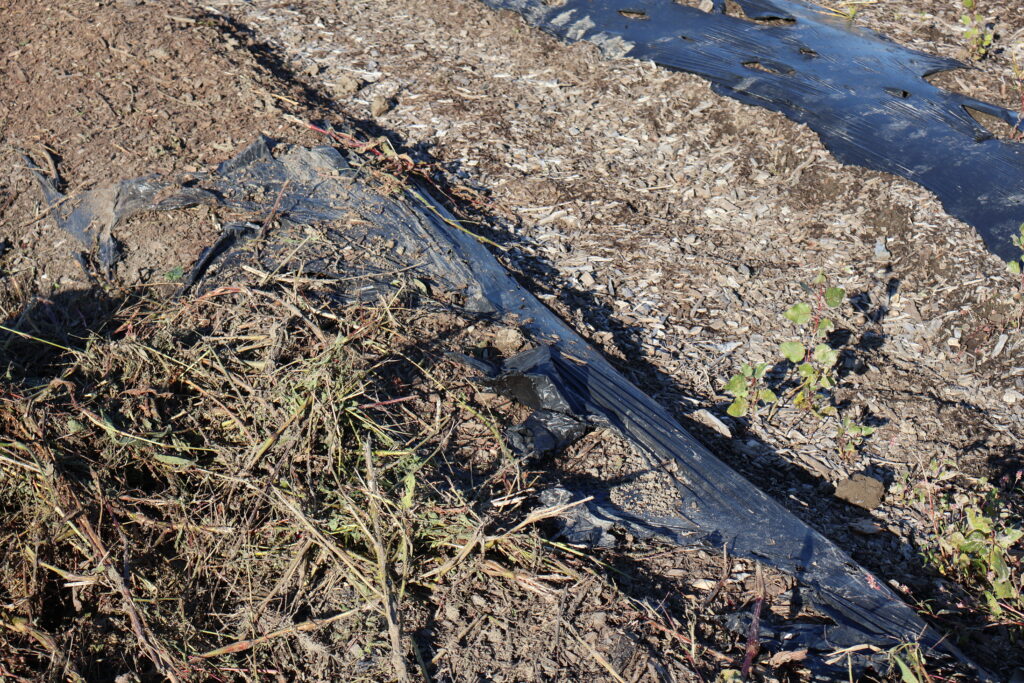

There are multiple areas within the conservation land where significant illegal dumping is occurring. Evidence correlates this dumping to the farm and its workers.









The Connecticut River Valley was once home to abundant quantities of wildlife and fish – even salmon. This is no longer true. Now, a casual swim there can cause serious harm. Fish usually require oxygen to breathe via their gills, unlike mammals who have to come to the surface to breath (ie dolphins). This means the river must have oxygen in it for fish to survive. Eutrophication “is a natural process that results from accumulation of nutrients in lakes or other bodies of water.” Eutrophication is a complex subject but this excess of nutrients can shift the balance of the ecosystem and eventually deplete oxygen, cause anaerobic bacteria to grow, and kill fish [6]https://www.usgs.gov/mission-areas/water-resources/science/nutrients-and-eutrophication. This is amplified in a drought due to low water flows in the river.

There are a few major sources of excess nutrients, mainly nitrogen and phosphorus, that enter the river from the Longmeadow floodplain. Contributors are the stormwater discharge, wastewater systems, and the meadows farm. The stormwater system was designed to drain water out of the town, into the river, and into the ocean as fast as possible. The stormwater system collects excess nutrients from lawns, which eventually will reach the river. The wastewater systems are regulated, tested, and permitted for certain nutrient discharge levels. The town of South Windsor CT for example is permitted by EPS to discharge about 100 lbs of nitrogen a day. They do not have a required level for phosphorus, but they discharge around 2 mg per L of phosphorus a day. The small town has outflows of over a three million liters a day, so that is 6 kg or about 13 lbs of phosphorous a day. Crop Production Services (CPS), a company which sells seed/fertilizer and helps create fertility programs in the Pioneer Valley, reported that at least 180 lbs of nitrogen per acre is required for field corn on Connecticut River clay soil. Clear Choices Clean Water Indiana says that “In addition to dead zones, excess nutrients in the water and the resulting algae blooms can result in the production of algal toxins and strange tastes and smells in the water. It takes just one (1) pound of phosphorus and seven (7) pounds of nitrogen entering a waterway to produce 500 pounds of algae” [7]https://indiana.clearchoicescleanwater.org/pledges/lawns/fertilizer-impacts/#void. Lately, phosphorus has been of increasing concern because bacteria will naturally fix nitrogen from the air (the law of limiting factors).
The river system will not be clean for swimming, drinking, eating, or risk-free recreation unless farmers control their fertilizer runoff.
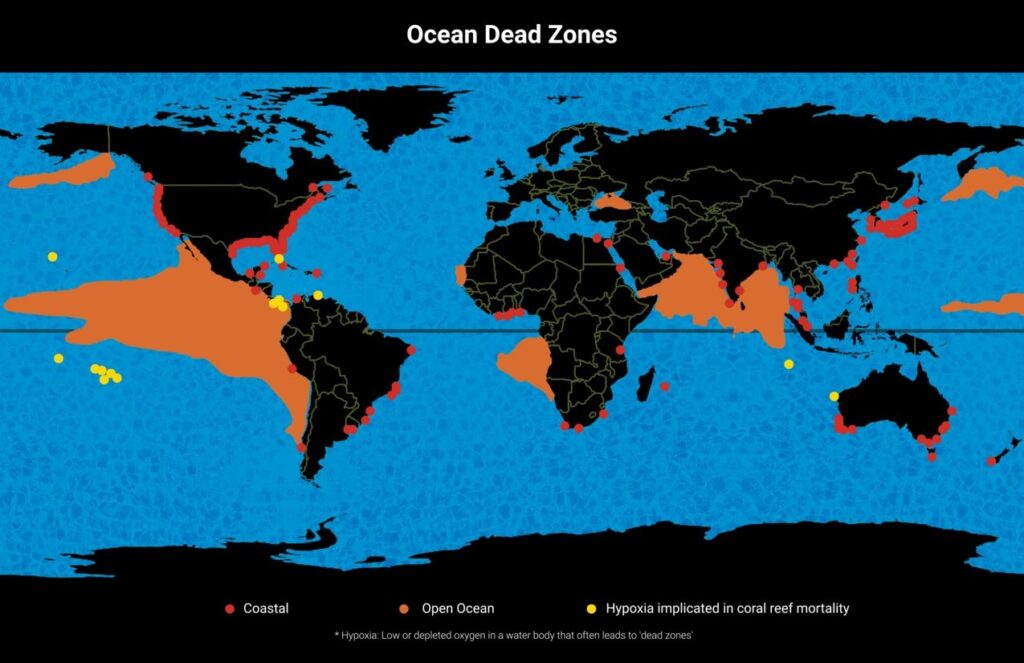

There is clear evidence that the farmer is not using safe land practices. In July-August of 2022, the farmer decided to change his sprayers hydraulic oil, engine oil, coolant, and other fluids on the conservation area. It is unknown where most of the fluids went, but it seems to be on the ground and in a single overflowing container. Amateur soil tests were conducted that showed this to be true. Small soil samples from areas with stains were added to test tubes filled with bottled water. The test tubes were capped with rubber cork, shaken, then left to settle for 48 hours. The top 1 mL or so of liquid was taken off with a pipette and a microscope slide was prepared. The slides were then observed under a microscope to show proof of oil in areas where soil was ‘stained.’ It is unlikely these are microbial cysts (dormant forms of bacterium/protists). This careless oil pollution proves that the farmer is not caring for the land.



This container was once full of dirty oil. The farmer left it out by the field in the rain this summer. By mid-August, a mixture of oil/water formed during the rain and overflowed onto the ground, killing nearby grass. After the rain, some of this emulsification (oil/water mixture) evaporated, then the phases separated over time, so the liquid level is not to the brim. Once the oil was floating on the water, no more water could evaporate.
This same phenomenon occurred again two weeks later, more overflowed and evaporated, further polluting the area.

Another consideration must be for ground water. This water used to be safe for residents in the meadows to drink but over time has become contaminated by human activities. It is difficult to remediate ground water contamination and it can last for a long time, especially if persistent compounds are found.
Pesticides

A pesticide is “a substance used for destroying insects or other organisms harmful to cultivated plants or to animals” [8]Oxford Dictionary. Pesticides have a large impact on ecosystems. The pesticide shown in the image is a broad-spectrum bactericide and fungicide, which causes harm to microbes that are important for fixing nitrogen and the carbon cycle [9]https://www.mdpi.com/2571-8789/3/2/23. Pesticides can kill a broad spectrum of insects, especially impacting important native pollinators. They also can kill birds who depend on these insects for food [10]https://nationalzoo.si.edu/migratory-birds/news/when-it-comes-pesticides-birds-are-sitting-ducks. Pesticides can also be harmful to humans – especially the workers who mix and spray pesticides [11]https://extension.psu.edu/potential-health-effects-of-pesticides. A relatively new class of synthetic insecticides called neonicotinoids are employed in 79-100% of corn fields [12]https://pubs.acs.org/doi/10.1021/es506141g. “Neonicotinoids are a group of insecticides that have a mode of action similar to that of nicotine and are often used as seed treatments because they can travel from the seed into the plant and control insects feeding on plants as well as on the seed” [13]https://portal.ct.gov/-/media/CAES/DOCUMENTS/Publications/pollinators/BestManagementPracticesforHandlingSeedsTreatedWithNeonicotinoidInsecticidespdf.pdf. Harvard has found a link between neonicotinoids and pollinator colony collapse disorder, but they can impact many invertebrates [14]https://www.hsph.harvard.edu/news/press-releases/study-strengthens-link-between-neonicotinoids-and-collapse-of-honey-bee-colonies/.
Herbicides

In industrial farming, it is common to use herbicides to obtain a clean slate and prevent ‘weed’ pressure. Note that this is a photo from the fields in August. Paraquat is used as a board spectrum herbicide. A licensed professional is required to properly dispose of these containers after use. Under the current towns requirements in the Request For Proposal (RFP), the farmer is required to remove chemical containers after use. They did not do that. I feel sorry for the workers who may have touched this and I hope they were taking the necessary steps to protect themselves.
According to the EPA, “Herbicides are chemicals used to manipulate or control undesirable vegetation. Herbicide application occurs most frequently in row-crop farming, where they are applied before or during planting to maximize crop productivity by minimizing other vegetation. They also may be applied to crops in the fall, to improve harvesting” [15]https://www.epa.gov/caddis-vol2/herbicides.
Allergies

A specific problem for the meadows is herbicide resistant ragweed. It seems nothing else will grow because of the farmer’s herbicides. There are probably more resistant types of weeds growing but different types of ragweed are dominant. In the fields, many non-corn vegetable fields are heavily afflicted by ragweed. This is one reason why workers wear masks even in the hot sun. Ragweed thrives in poor or disturbed soil. It can be seen taking over highways in our area. Ragweed plays a vital role in our ecosystem, but an overabundance of it does harm to animals and humans. Often ragweed starts in mid-August and ends when the frost hits. A single ragweed plant can produce a billion grains of pollen. 15% of Americans are allergic to ragweed and have symptoms, while a smaller number might need medical attention when exposed to the meadow’s fields in the fall [16]https://www.aafa.org/ragweed-pollen/. This type of farming prevents residents from enjoying the towns outdoor resources, such as walking, biking, or watching bird migrate in the fall.

Ragweed is becoming more of an issue as climate change accelerates; “Warmer temperatures and increased carbon dioxide concentrations also enable ragweed and other plants to produce more allergenic pollen, in larger quantities. This means that many locations could experience longer allergy seasons and higher pollen counts as a result of climate change [17]https://www.epa.gov/climate-indicators/climate-change-indicators-ragweed-pollen-season.”
Water Cycle
Destructive farming practices are known to disrupt the small water cycle – leading to droughts and changes in the weather. Although the farm in town does not cause this alone, it definitely contributes, especially because it is a wetlands floodplain. Among other things, water is the basis for life. Healthy soil can hold on to 16,500 gallons of water per acre for every 1% of soil organic matter [18]https://www.canr.msu.edu/news/compost_increases_the_water_holding_capacity_of_droughty_soils. Plants will transpire this water into the air on hot days, which leads to an increase in humidity and cloud formation over land [19]https://nhpbs.org/natureworks/nwep7a.htm. “Of the transpired water passing through a plant only 1% is used in the growth process of the plant. The remaining 99% is passed into the atmosphere [20]https://www.weather.gov/jetstream/hydro.”
“Give me Iowa and I’ll change the Weather”
Ridge Shinn, grass-fed rancher

It is a complicated subject, which is out of scope for this post, but restoring the natural ecosystem will help restore the water cycle [22]https://regenagsa.org.za/the-water-cycle/.
Soil Health
While industrial agriculture makes it easier to farm and produce cheaper food – it also hurts the soil and the consumer. Organic farmers make the joke that you either pay now or you pay later. Soil is a weakly renewable resource – meaning it takes a long time to build but it can be quickly destroyed. In another post I may talk about the desertification of Enfield, it is crazy; farming sand takes a lot of irrigation, fertilizers, and chemicals.
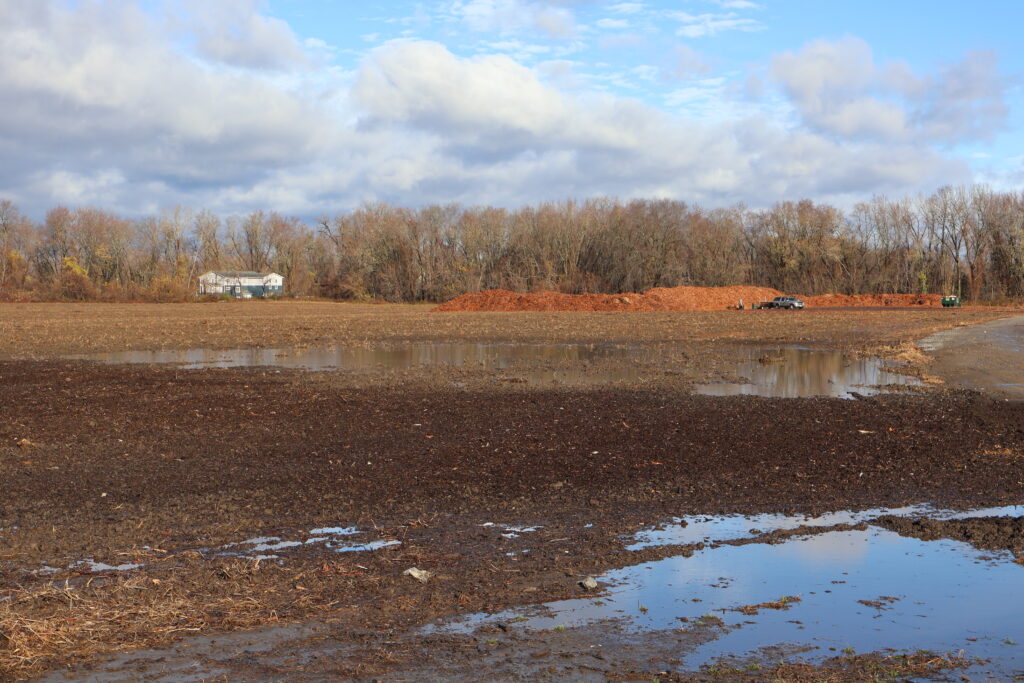
Plowing is another unnatural and destructive process currently used by the farmer to ‘reset’ the field. “Traditional plowing leads to soil loss. Plowing disturbs bacteria, fungi, and animals that make soils naturally fertile, and it releases the carbon stored in soil organic matter to the atmosphere as carbon dioxide, a greenhouse gas. It also raises the risk of erosion, which moves fertile farm soil into bodies of water. [23]https://forces.si.edu/soils/02_07_04.html”

Cover crops are an extremely useful tool in regenerative agriculture. The benefits are vast and complex. Please refer to the United States Department of Agriculture (USDA) for an understanding of the benefits of this practice [24]https://www.nrcs.usda.gov/wps/portal/nrcs/detail/ny/technical/?cid=nrcs144p2_027252. A cool way to picture this is that the soil is alive, full of living things, and plants basically release compounds that feed the soil. Energy comes from the sun, and plants trade that energy with soil life for nutrients. The towns’ RFP required the farmer to plant a winter cover crop after harvesting – they recommended monoculture winter rye; the farmer has continually ignored this requirement.
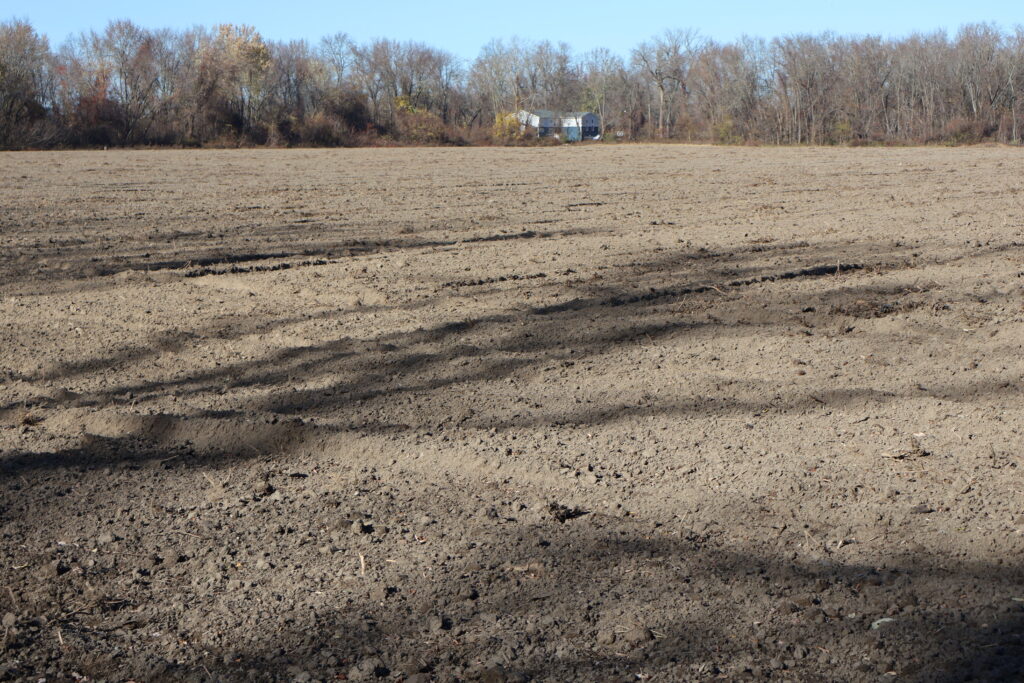
Town Leaves
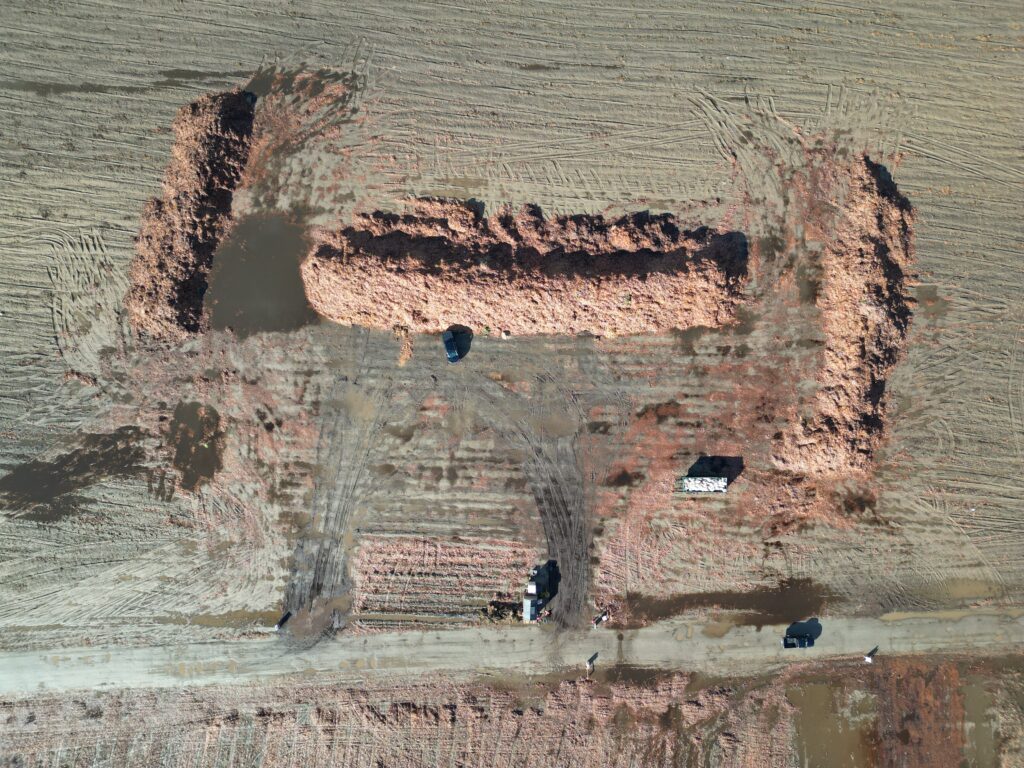
It is reasonable to theorize that the farmer has a special fertility program to manage the acidity of the town leaves. If the soil pH is not correct, this could negatively impact plant nutrient uptake. The farmer would need to add more nitrogen to encourage microbial life to decompose the leaves faster since there is not enough time over the winter to decompose the leaves [25]https://hortnews.extension.iastate.edu/faq/how-can-i-accelerate-decomposition-leaves-my-compost-pile. This would increase run off and nitrous oxide emissions, although it depends on the specific fertility program [26]https://pubmed.ncbi.nlm.nih.gov/31638306/.
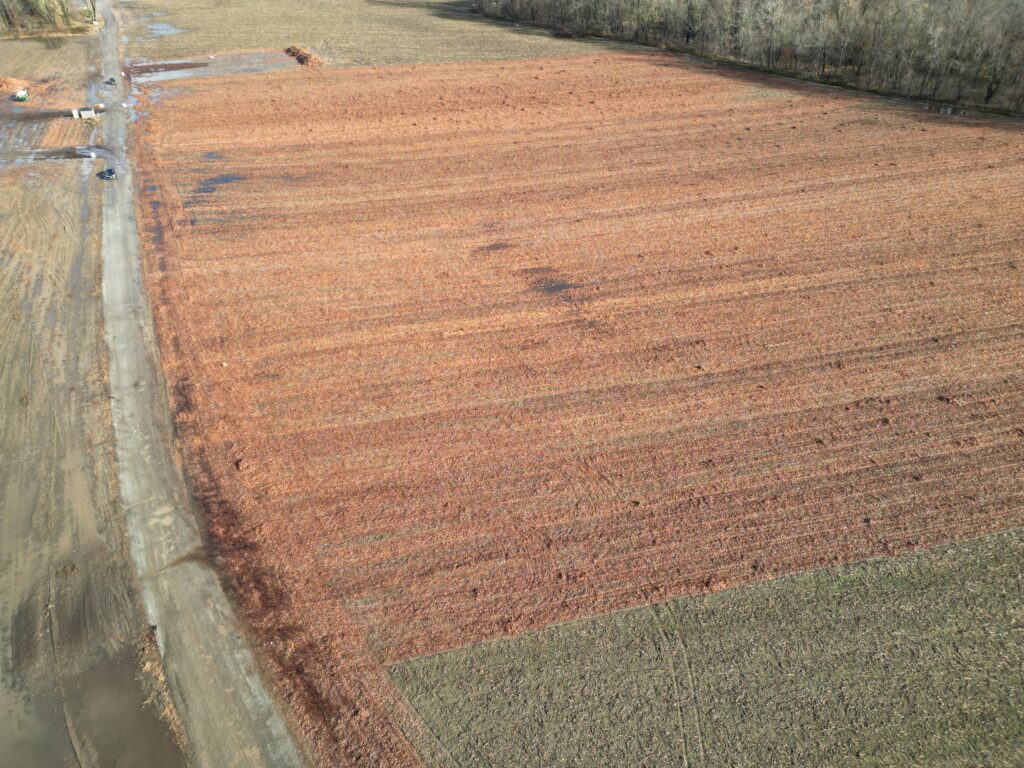
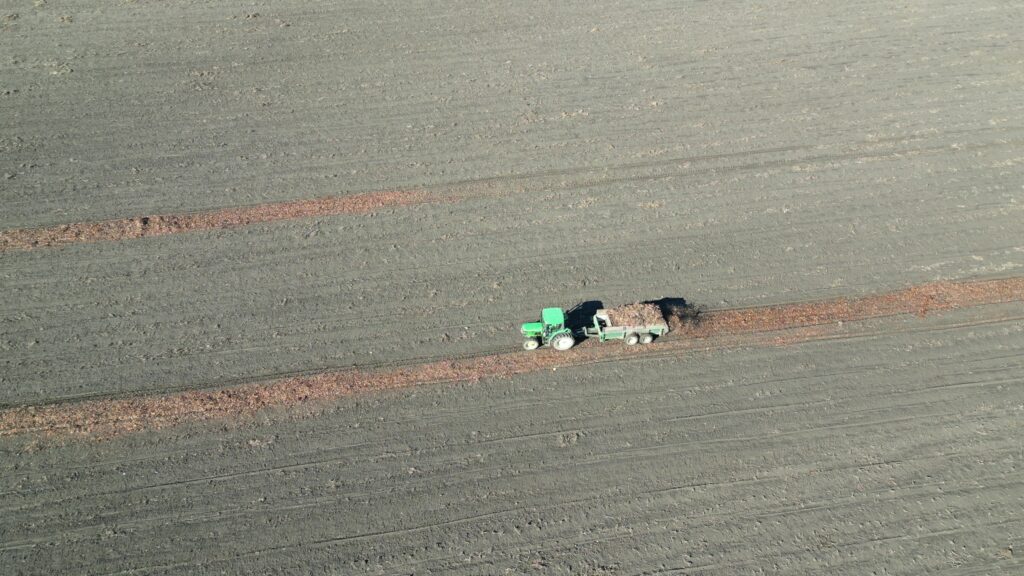
Municipal composting programs are common. Towns like Ludlow will put their leaves in a pile, compost it, and then sell it or give it away. Longmeadow’s solution for leaves is overly complex and hurts the earth. The town should also considering switching from selling plastic bags to paper bags for leaf pickup.
Town Profit

The farmers contract is up for renewal in 2023. One potential way to overcome this $63,166 a year is to start a tree/plant nursery on a small portion of the land.
Conclusion
Are you angry this is happening in town? Sad? Confused? Same. I have experienced all these feelings. I want everyone in town to consider this situation and make your voices heard. If you want to help, send an email to the town manager (townmanager@longmeadow.org) or the Select Board (selectboard@longmeadow.org). I invite everyone to the comments section. Please subscribe for new post emails – longmeadownature.com/subscribe.
To end this, I would like to highlight a potential conflict of interest. As many know, there are a lot of heated debates and lawsuits between corporations and people who claim to have been impacted by chemicals: Glyphosate causing non-hodgkin’s lymphoma [27]https://pubmed.ncbi.nlm.nih.gov/31342895/, paraquat linked to parkinsons [28]https://pubmed.ncbi.nlm.nih.gov/21269927/, neonictinoids causing issues with nervous system development [29]https://ehjournal.biomedcentral.com/articles/10.1186/s12940-021-00821-z, the list goes on. You can find information on both sides about these chemicals. My opinion is that it is difficult to prove either way that these human made chemicals are dangerous or safe for everyone in the long run. When you read papers and peer reviews that critique arguments, this is highlighted, that humans have trouble analyzing all the potential impacts of a chemical. If you make a scientific claim that something is unsafe, all it takes is a few critiques to cause inaction by the government. A company will discover a chemical, fast track its approval, and within a few years hit the market. Since modern agriculture is based on these chemicals, farms will use them to make more profit, which in turn gives profit to the companies who discovered and put the chemicals on the market. Regardless of the human health impacts, a scientific consensus has been reached that these chemicals have a detrimental impact on nature because that is what they were designed to do – kill plants, fungus, insects, nematodes, and bacteria. The chair of our conservation commission, John Bresnahan, has made his career from selling these chemicals. He worked for BASF and now works for Syngenta. This potential conflict between selling chemicals that may hurt nature and conserving nature is alarming. The town needs a chair that is impartial and is fully dedicated to conserving nature. This may be already true, and I am ignorant, but I would like to confirm it.
All the photos in this post were taken by me this year at the farm.
References
| ↑1 | https://www.nps.gov/orgs/1211/index.htm |
|---|---|
| ↑2 | https://maps.massgis.digital.mass.gov/MassMapper/MassMapper.html |
| ↑3 | https://www.mass.gov/orgs/masswildlifes-natural-heritage-endangered-species-program |
| ↑4 | https://www.epa.gov/wetlands/why-are-wetlands-important |
| ↑5 | https://pubs.acs.org/doi/abs/10.1021/acs.est.9b01517 |
| ↑6 | https://www.usgs.gov/mission-areas/water-resources/science/nutrients-and-eutrophication |
| ↑7 | https://indiana.clearchoicescleanwater.org/pledges/lawns/fertilizer-impacts/#void |
| ↑8 | Oxford Dictionary |
| ↑9 | https://www.mdpi.com/2571-8789/3/2/23 |
| ↑10 | https://nationalzoo.si.edu/migratory-birds/news/when-it-comes-pesticides-birds-are-sitting-ducks |
| ↑11 | https://extension.psu.edu/potential-health-effects-of-pesticides |
| ↑12 | https://pubs.acs.org/doi/10.1021/es506141g |
| ↑13 | https://portal.ct.gov/-/media/CAES/DOCUMENTS/Publications/pollinators/BestManagementPracticesforHandlingSeedsTreatedWithNeonicotinoidInsecticidespdf.pdf |
| ↑14 | https://www.hsph.harvard.edu/news/press-releases/study-strengthens-link-between-neonicotinoids-and-collapse-of-honey-bee-colonies/ |
| ↑15 | https://www.epa.gov/caddis-vol2/herbicides |
| ↑16 | https://www.aafa.org/ragweed-pollen/ |
| ↑17 | https://www.epa.gov/climate-indicators/climate-change-indicators-ragweed-pollen-season |
| ↑18 | https://www.canr.msu.edu/news/compost_increases_the_water_holding_capacity_of_droughty_soils |
| ↑19 | https://nhpbs.org/natureworks/nwep7a.htm |
| ↑20, ↑21 | https://www.weather.gov/jetstream/hydro |
| ↑22 | https://regenagsa.org.za/the-water-cycle/ |
| ↑23 | https://forces.si.edu/soils/02_07_04.html |
| ↑24 | https://www.nrcs.usda.gov/wps/portal/nrcs/detail/ny/technical/?cid=nrcs144p2_027252 |
| ↑25 | https://hortnews.extension.iastate.edu/faq/how-can-i-accelerate-decomposition-leaves-my-compost-pile |
| ↑26 | https://pubmed.ncbi.nlm.nih.gov/31638306/ |
| ↑27 | https://pubmed.ncbi.nlm.nih.gov/31342895/ |
| ↑28 | https://pubmed.ncbi.nlm.nih.gov/21269927/ |
| ↑29 | https://ehjournal.biomedcentral.com/articles/10.1186/s12940-021-00821-z |
These photos and text are a powerful indictment of all those who are charged with protecting our wetlands.
Who is the author of this report. What are your credentials, and do you have any conflict of interest in this report?
I am the author. I work at McDonalds, I have no degree, and no credentials. I probably have a bunch of conflicts not sure where to start?
Hello Frank,
This was a great article! I found it incredibly informative and very well written. I am a LHS graduate, class of 2010. After high school I attended Plymouth State University and studied outdoor education. I worked for several years taking students rock climbing, surfing, backpacking, etc. and taught leadership, risk management, and decision making skills. Conservation and environmental education was a large part of our curriculum as well.
My name is Jack Bresnahan, and while my father, John, does work for Syngenta, I know he feels strongly about conservation and environmental protection. These values that we share were instilled in me by him. I suggest you reach out to him directly as he is an ally in making positive changes down at the Longmeadow Farm.
Thank you for bringing this serious issue to our attention, and I would like to share a quote by Walt Whitman: “Be curious, not judgemental”
Sincerely,
Jack Bresnahan
Hi Jack, thank you for the quote and the kind words. I really appreciate it. We need more people like you to spread love, not hate. Im sure your father is a great person solely based on your character. Im not sure who Frank is, he did not write the article, seems like a troll. I want to work with the Conservation Commission to help solve the issues. There is no use in humans fighting while nature is hurting. I apologize for any negative impacts I may have caused with my article, but I feel strongly about the floodplain.
Thank you Frank. I’m going to look into this
This is outrageously alarming! Thank you for all the work you are doing!!! Please make sure the Town Manager sees this! I was aware of the eggplants being abandoned andI helped pick some for donation to needy folks. Who is in charge of this mess? The average person around here is probably not aware of this problem! We need to wake everyone up!
Good for you, Liam, well done!…. Your neighbor, Rhanee
you got me on hello!!!
Keep me in the loop. This is egregious and if not acted upon will undoubtedly continue. Next steps?
I will make sure to keep everyone updated. The next steps would be to see if the town manager, concom, or select board will cancel the farmers contract. He has been abusing the town for years and everyone knows it. The town is set on this archaic leaf disposal method because the old conservation commission chair created it.
Thank you for caring and taking the time to bring this to the public’s attention. It is quite upsetting to see this lack of responsibility to our environment in today’s world. This is a big first step as no one wants the beautiful conservation land to be abused, it should be enjoyed by nature and the town. Next steps???
Thank You for bringing these issues to light. Your article is well written and fact based. Living on Dunn Road for close to twenty years and being at the epicenter of these abuses to the environment, it is encouraging to know that other residents are as disturbed as I am about the constant (daily) mistreatment of our conservation land. I also want to forward that there are large scale issues with illegal dumping and off road vehicles. I can speak for the residents on Dunn Road, these infractions have been a constant issue (with the town being notified) and very little being done. Please continue to bring these issues to light, and hopefully we can correct these abuses so that our future generations can enjoy this land as much as my family and I have.